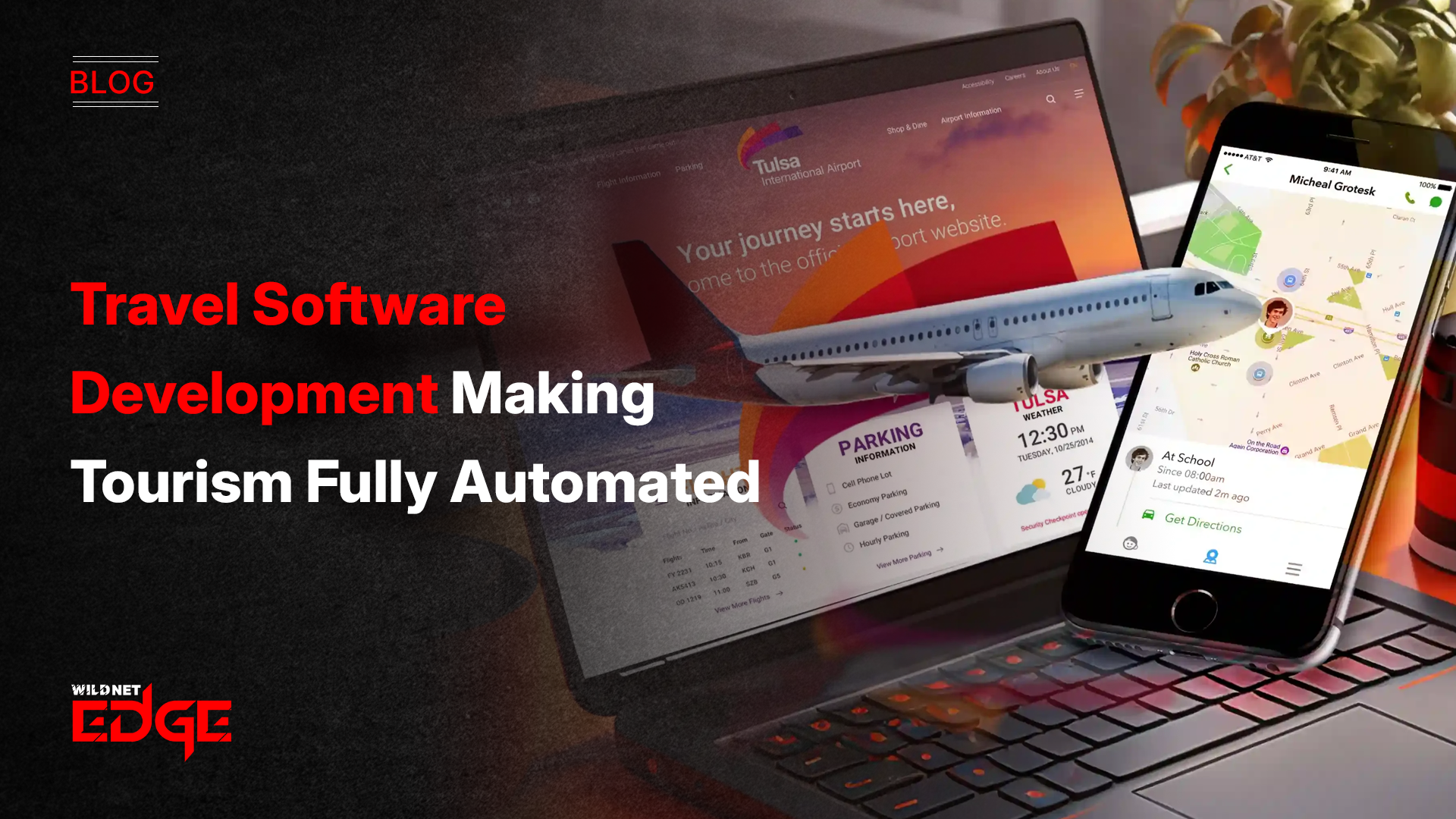The landscape of healthcare has long been riddled with challenges — from misdiagnoses to inefficiencies in patient management and overwhelming paperwork. In a system where accuracy and promptness are paramount, traditional methods can often fall short, leading to delays in treatment and poorer patient outcomes. The question arises: how can we enhance the efficiency and accuracy of healthcare diagnoses?
Enter AI healthcare app development. These innovative platforms leverage cutting-edge technologies to address traditional diagnostic shortcomings, enabling healthcare professionals to make better-informed decisions swiftly. By integrating advanced algorithms and massive datasets, medical AI apps promise not just to improve diagnosis but also to revolutionize the entire healthcare experience for the better.
Importance of AI Healthcare Apps
Enhancing Diagnostic Accuracy
AI healthcare apps play a vital role in enhancing diagnostic accuracy by utilizing algorithms informed by extensive datasets. Research indicates that when AI is employed in diagnostic processes, it can outperform human specialists in various medical fields. For example, a study published in the journal Nature found that AI diagnostic tools were able to identify breast cancer in mammograms with 94.6% accuracy, compared to 88.0% for human radiologists.
This significant difference highlights the potential of machine learning models to reduce human error, which is particularly valuable in high-stakes environments such as oncology and cardiology. AI-driven platforms can analyze patterns and indicators that are often missed by the naked eye, allowing for more accurate diagnoses. Such improvements can lead to early detection of diseases, ultimately resulting in better patient outcomes and increased survival rates.
Reducing Time and Costs
AI healthcare apps also excel in minimizing the time spent on diagnostic processes. Traditional methods often entail lengthy tests and evaluations, sometimes causing patients to wait days for results. AI technologies can cut through this delay by processing large amounts of data in real-time, providing immediate insights that facilitate quicker decision-making.
From a financial perspective, incorporating AI into healthcare systems can lead to significant cost reductions. For instance, a 2024 analysis suggested that using AI apps could decrease diagnostic-related expenses by approximately 20-30% when compared to conventional procedures. Hospitals can save on resources like labor and materials, which can be redirected toward improving patient care and expanding services.
Key Features of Medical AI Apps
Data Analysis Capabilities
Data analysis stands at the forefront of AI healthcare app development. These apps are designed to harness big data efficiently, enabling users to extract actionable insights from diverse patient datasets. By employing statistical techniques and machine learning algorithms, medical AI apps can spot trends and predict potential health risks even before symptoms manifest.
Real-time data processing further amplifies the benefits. For instance, a healthcare provider could employ an AI app that continuously analyzes real-time biometric data from connected wearable devices. This application could notify medical staff instantly if a patient shows signs of deteriorating health, allowing for timely interventions that could save lives.
User-Friendly Interfaces
Making complex data understandable is critical, especially in healthcare environments where professionals may be under significant pressure. Therefore, intuitive design is paramount in medical AI apps. A well-executed user interface not only enhances the usability of the app but also decreases the likelihood of errors in decision-making.
Prominent examples of successful app interfaces include IBM Watson Health, which utilizes a clean, user-centered design to facilitate easy navigation for healthcare professionals. Users can efficiently access relevant data and recommendations without being bogged down by overwhelming information. This focus on user experience can be a deciding factor for healthcare facilities looking to adopt AI technologies.
AI Technologies in Healthcare Applications
Machine Learning in Diagnosis
Machine learning has become indispensable in AI healthcare app development, particularly for its capabilities in predictive analytics. Algorithms such as decision trees, support vector machines, and neural networks enable these apps to learn from historical patient data, thereby improving diagnostic precision over time.
Moreover, unsupervised learning techniques allow for the identification of underlying patterns in patient data without pre-labeled outcomes, creating new avenues for diagnostic possibilities. As a result, tailored treatment plans can be developed by analyzing a patient’s individual needs and medical history, thus fostering personalized healthcare strategies.
Natural Language Processing (NLP) Benefits
Natural Language Processing (NLP) is another technology that’s making headway in the field of medical AI apps. By translating unstructured data from patient records, doctors’ notes, and research articles into actionable information, NLP can significantly enhance the diagnostic process.
A compelling case study involves a medical AI app that uses NLP to scan and summarize medical literature for practitioners. This app not only saves time but also ensures that physicians are armed with the most relevant information for their patients. For instance, a tool like Google Health’s AI capability demonstrated in 2024 was able to sift through vast amounts of patient data and literature, identifying key trends that helped doctors make informed decisions about treatment plans.
Challenges in AI Healthcare App Development
Data Privacy and Security
One of the most pressing challenges in AI healthcare app development is ensuring data privacy and security. Patient data is highly sensitive, and breaches can have dire consequences. Regulations such as the HIPAA (Health Insurance Portability and Accountability Act) in the United States impose strict guidelines on how healthcare data must be handled, requiring developers to implement advanced security measures to protect user information.
Navigating such regulations can be complex, especially when considering international data protection laws like the GDPR (General Data Protection Regulation) in Europe. Companies must be vigilant in maintaining compliance, which often involves regular audits and updates to security protocols.
Integration with Existing Systems
Integrating AI healthcare apps with existing hospital systems is another challenge that developers often face. Legacy systems may not be compatible with new technologies, leading to potential disruptions in workflows. Hospitals typically have established software and hardware ecosystems, and bringing AI solutions into these environments can sometimes require extensive reworking of their infrastructure.
For example, a hospital attempting to integrate an AI diagnostic app may encounter issues if their electronic health records (EHR) system does not support the new software’s APIs. Successful integration necessitates thorough planning and collaboration with IT departments to ensure smooth transitions and continued patient care.
Future Trends in Medical AI Apps
AI-Driven Personalized Medicine
The future of healthcare is steering towards personalized medicine, where AI plays a pivotal role in tailoring treatment plans to individual patients. By analyzing genetic information, lifestyle, and environmental factors through advanced algorithms, AI healthcare apps can recommend customized therapies that align better with each patient’s unique conditions.
This approach has shown promise in fields such as oncology and chronic disease management, where understanding the nuances of a patient’s background significantly influences treatment outcomes. Not only can personalized medicine improve effectiveness, but it also may reduce the likelihood of adverse reactions from generalized treatment plans.
Telehealth and AI Collaboration
The COVID-19 pandemic prompted a surge in telehealth services, and AI healthcare apps are increasingly becoming instrumental in this trend. AI technologies enhance telehealth by providing virtual consultations enriched with real-time data analysis, making remote diagnosis more accurate and interactive.
Statistics show that telehealth usage skyrocketed by over 60% during the pandemic, and it continues to play an essential role in modern healthcare. AI tools integrated within telehealth platforms enable providers to deliver care efficiently, ensuring that patients receive timely diagnoses without the need for in-person visits.
Success Stories of AI Healthcare Apps
Notable Case Studies
Many AI healthcare apps have achieved notable success in improving diagnostic accuracy and efficiency. For instance, the app Aidoc employs advanced AI algorithms to help radiologists flag acute abnormalities in medical imaging. It has demonstrated success in reducing the turnaround time for critical cases by more than 40%, thereby enhancing the speed and quality of patient care.
Another case study involves Zebra Medical Vision, which uses AI to detect conditions from imaging studies, including cardiac diseases and cancers. By processing over a million imaging studies, the app provides radiologists with powerful insights that can lead to faster and more accurate diagnosis.
User Testimonials and Feedback
User feedback for AI healthcare apps often underscores their transformative potential. Healthcare professionals acclaim their ability to streamline diagnostic processes, as one doctor noted, “With the AI healthcare app, I can focus more on patient care rather than getting lost in paperwork and manual diagnostics.”
Patients, too, express appreciation. A patient who underwent treatment after utilizing an AI diagnostic platform remarked, “I was blown away by how quickly I received my diagnosis. The app not only helped my doctor but made me feel prioritized as a patient.”
Conclusion
In summary, AI healthcare app development is poised to significantly improve diagnostic processes across the medical field. By leveraging advanced technologies, these apps enhance diagnostic accuracy, reduce costs, and streamline workflows, ultimately benefiting both healthcare professionals and patients alike. The potential of this innovation is vast, and companies like Wildnet Edge serve as trusted partners in revolutionizing the healthcare landscape through AI advancements.
If you’re interested in developing an AI-driven healthcare solution or simply wish to learn more, consider consulting with experts in the field to elevate your understanding and application of these transformative technologies.
FAQs
Q1: What are the main benefits of AI healthcare app development?
AI healthcare app development improves diagnosis accuracy, reduces costs, and enhances patient care.
Q2: How do medical AI apps enhance diagnostic processes?
Medical AI apps leverage machine learning and data analysis for timely and accurate diagnostics.
Q3: What technologies are used in medical AI applications?
Machine learning and NLP are core technologies that drive innovations in medical AI apps.
Q4: What are the main challenges in implementing AI healthcare apps?
Data privacy, security, and integration with existing systems pose significant challenges.
Q5: How will AI healthcare apps evolve in the future?
Future trends indicate an increase in personalized medicine and stronger telehealth capabilities.

Nitin Agarwal is a veteran in custom software development. He is fascinated by how software can turn ideas into real-world solutions. With extensive experience designing scalable and efficient systems, he focuses on creating software that delivers tangible results. Nitin enjoys exploring emerging technologies, taking on challenging projects, and mentoring teams to bring ideas to life. He believes that good software is not just about code; it’s about understanding problems and creating value for users. For him, great software combines thoughtful design, clever engineering, and a clear understanding of the problems it’s meant to solve.
 sales@wildnetedge.com
sales@wildnetedge.com +1 (212) 901 8616
+1 (212) 901 8616 +1 (437) 225-7733
+1 (437) 225-7733















 ChatGPT Development & Enablement
ChatGPT Development & Enablement Hire AI & ChatGPT Experts
Hire AI & ChatGPT Experts ChatGPT Apps by Industry
ChatGPT Apps by Industry ChatGPT Blog
ChatGPT Blog ChatGPT Case study
ChatGPT Case study AI Development Services
AI Development Services Industry AI Solutions
Industry AI Solutions AI Consulting & Research
AI Consulting & Research Automation & Intelligence
Automation & Intelligence















